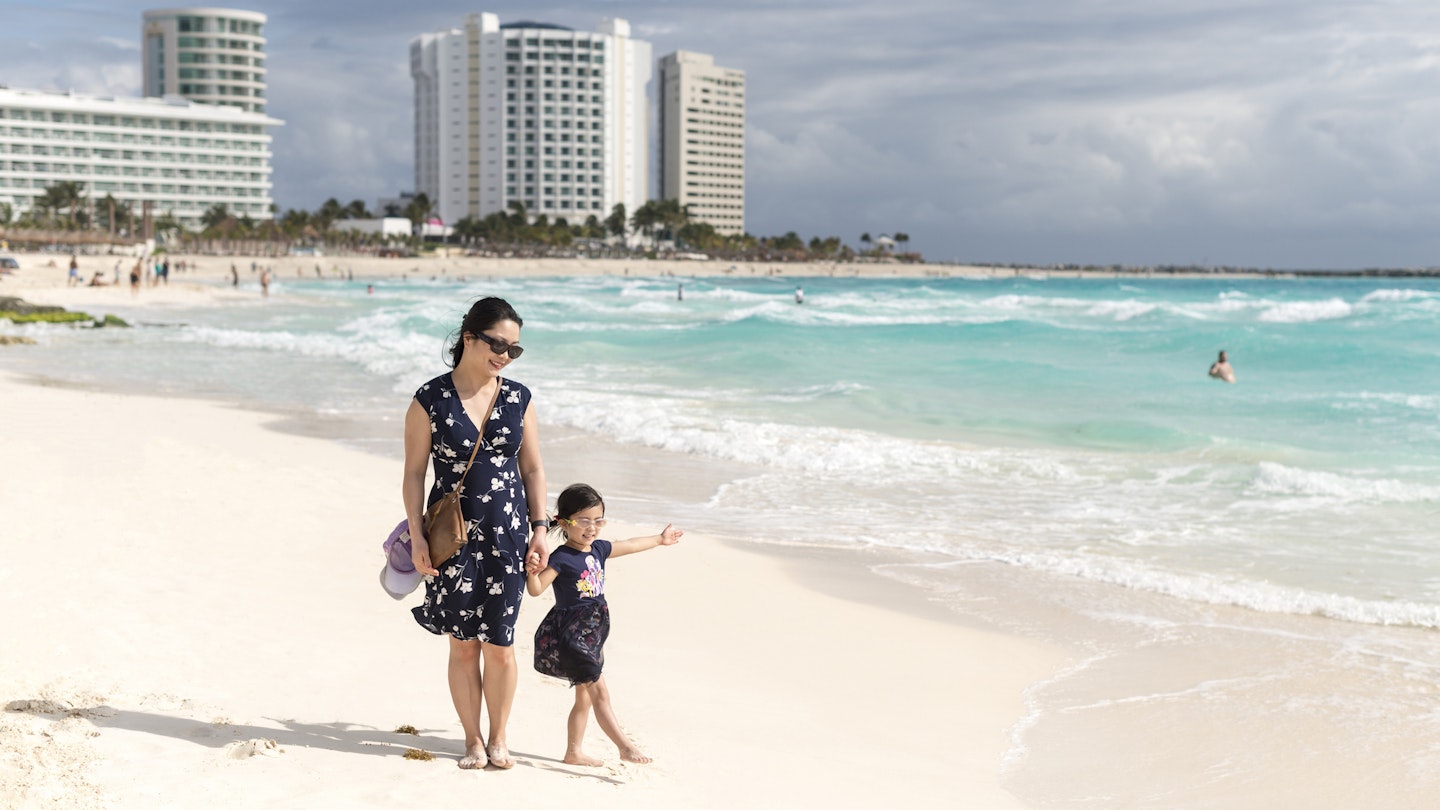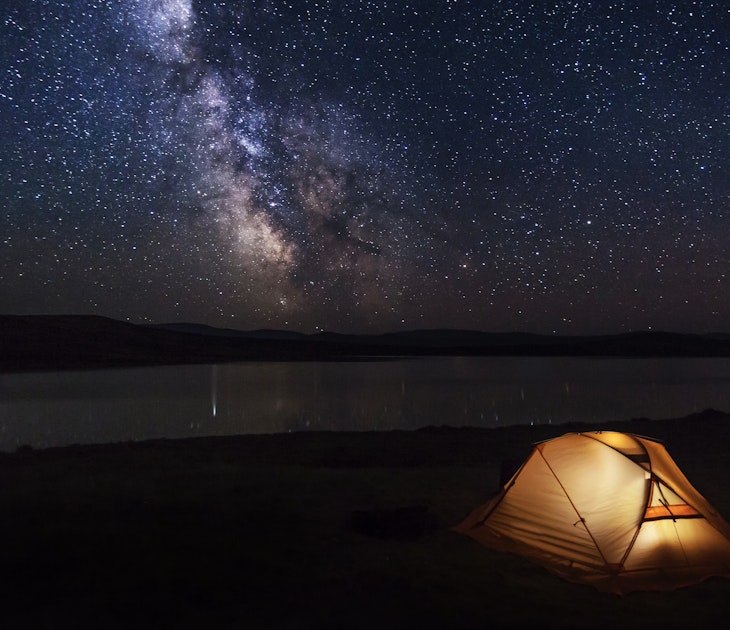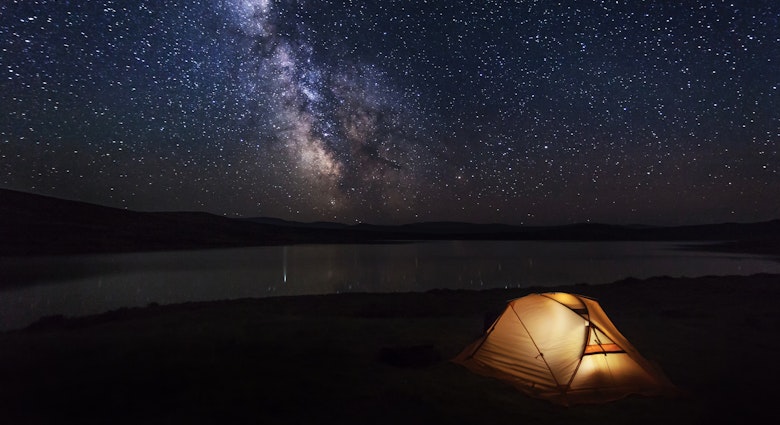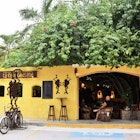If my frequent travels to Cancún have taught me anything, it's that paradise will throw you a curveball from time to time, just to keep things real.
Among the setbacks, I've experienced a costly car break-in, brazen price gouging and a debilitating bout of sickness with dengue fever, an ordeal that still makes my joints ache just thinking about it. But I can also say that every time I found myself in need of help, the good folks in Cancún stepped up big-time, and that's no small thing.
Some first-time visitors never leave the touristy, high-gloss hotel zone, and while it’s an undeniably stunning resort area with postcard-perfect Caribbean beaches, you’ll kick yourself later if you overlook the Centro, a bustling downtown where you can mingle with locals in the neighborhood cantinas, traditional markets and atmospheric taco joints. You’ll be glad you made the effort.
Here are some more pointers on health, safety and etiquette to help make your journey in Cancún go as smoothly as possible.

1. Stay alert and don't let the clickbait headlines spook you
In spite of all the grim news about Mexico's drug-related violence, Cancún remains generally safe for visitors who avoid illicit activities. Granted, one should never take the crime problem lightly, but the Yucatán Peninsula is considered a relatively safe region, and drug gangs rarely target tourists.
It's also important, when partying in bars and nightclubs, to always keep a close watch on your beverage, as there have been some reports of tourists getting their drinks spiked with so-called date rape drugs. Lastly, avoid withdrawing money from ATMs at night, and do not carry large amounts of cash.
2. Monitor hurricane season and seaweed surges
Cancún's hurricane season runs from June to November, and over the years the city has seen powerful storms cause devastating damage, so you might want to check out the latest weather forecast before boarding a plane.
Also, keep a close eye on sargassum seaweed surges (sargazo in Spanish), which can turn Cancún's turquoise waters brown and leave mounds of smelly, decomposing macroalgae carpeted across otherwise white sands. A seaweed influx makes swimming and sunbathing downright unpleasant, and should you have the unfortunate experience, you'll probably be doing less beach time and spending more hours splashing around in hotel pools and cenotes (freshwater sinkholes). The invasive surges occur intermittently, usually from March to August, but they can be unpredictable. The NGO Red de Monitoreo de Sargazo posts daily updates on beach conditions in Cancún and the nearby Riviera Maya.
3. Tip generously and haggle respectfully
Keep in mind that many Cancún service workers (namely restaurant and hotel employees) depend on tips to supplement miserable wages. In restaurants, leave a 15% gratuity if the service is not already included, but always check the bill carefully as some unscrupulous establishments may attempt to tack on a "service fee" in hopes that customers unknowingly leave an additional tip.
For airport and hotel porters, tip about M$25 a bag, while for tour guides give an extra 10–20% of the cost of the outing, or perhaps a bit more for full-day excursions. Gas station attendants typically get about M$5–10. Bartenders, baristas and taxi drivers generally do not expect tips but always welcome them. It's acceptable to haggle with the market and street vendors to a certain degree, but remember that they're just trying to make a living.

4. Don't forget to pack ID, bug spray and casual clothing
If you rent a car, you'll be asked to show a passport, driver's license and credit card. Mexican law requires you to have liability coverage, known in Spanish as daños a terceros. Citizens from the US, Canada and EU countries, as well as residents from dozens of other nations, do not require visas to enter Mexico as tourists.
To protect yourself from mosquitoes and the sun, pack biodegradable insect repellent, long-sleeve shirts and a pair of pants. You'll definitely need the bug spray when visiting during the muggy wet season from May through October. Even if you have repellent or sunscreen of the biodegradable variety, do not use them while swimming or snorkeling in fragile ecosystems such as coral reefs and cenotes. Loose-fitting clothes that dry quickly will serve you well for water activities and rainy days.
5. Explore the surrounding countryside
You can usually find plenty of things to do in the hotel zone and downtown Cancún, but if you really want to expand your horizons, venture down south to check out ancient ruins, jungle-set swimming holes and small fishing towns along the Riviera Maya, or head east on a day trip to Valladolid, a colonial city with a rich Maya history. Alternatively, the nearby islands of Isla Mujeres and Isla Holbox provide blissful nature escapes for snorkeling, diving and kayaking adventures. Try to squeeze in at least one trip to see a different side of the Yucatán Peninsula; seven to 10 days should give you ample time to tour Cancún and beyond.
6. Carry cash and bring a credit and/or debit card
Even though most establishments in Cancún accept major credit cards, it's always useful to carry some cash, especially when visiting the smaller surrounding towns and islands. Many hotels, and even some restaurants, accept US dollars, but they normally offer an unfavorable currency exchange rate. Foreign debit cards can be used at the ubiquitous ATMs, but expect to get dinged with international transaction fees for withdrawals, and in many cases, for retail purchases as well. Some major credit cards, however, have no such fees, giving you the most bang for your buck. Cancún's ATMs dispense Mexican pesos.

7. All-inclusives are great, but you're missing Cancún's food scene
Most of Cancún's all-inclusive hotels are clustered in the hotel zone, though a growing number of high-end resorts are cropping up in Punta Sam and along the sublime Isla Blanca peninsula, just north of downtown. The all-inclusive experience ranges from luxurious adults-only setups with above-and-beyond service (personal butlers and all) to slightly more affordable family-friendly accommodations. Suppose you're looking for a safe, self-contained environment featuring multiple restaurants, bottomless drinks, easy beach access and alluring outdoor pools with kid-focused activities. In that case, all-inclusives are calling your name.
Or if you prefer the resort experience without the meals and booze, some places offer room-only rates, which pushes you to get out and dive into Cancún's diverse culinary and nightlife scene. Budget travelers will find more options in the downtown area, where hostels and mid-range digs abound.
8. Rideshare services are available in Cancún
The app-based transportation service Uber operates in Cancún, but drivers and their passengers have been subjected to harassment, and in some cases attacks, by taxi union members due to a long-running dispute. If you decide to use Uber, do so at your own risk, and do not order a car from the airport, bus station, ferry terminals or other points where rival taxis may be watching. For the most affordable transportation from the airport, look for the red ADO bus, which runs frequently from the airport terminals to downtown Cancún's first-class bus terminal. However, if you're staying in the hotel zone, you're better off taking a shuttle or cab.
9. Don't drink the water, and try street food with caution
Cancún's tap water is generally not safe to drink unless you know it's filtered (agua filtrada). The same goes for drinks prepared with ice; when in doubt go without. Bottled or purified (purificada) water is your best bet to stay hydrated, and you'll need plenty of it to avoid heat exhaustion. Eating street food can be somewhat dicey in Cancún, but it's a tantalizing risk that many visitors are willing to take.












